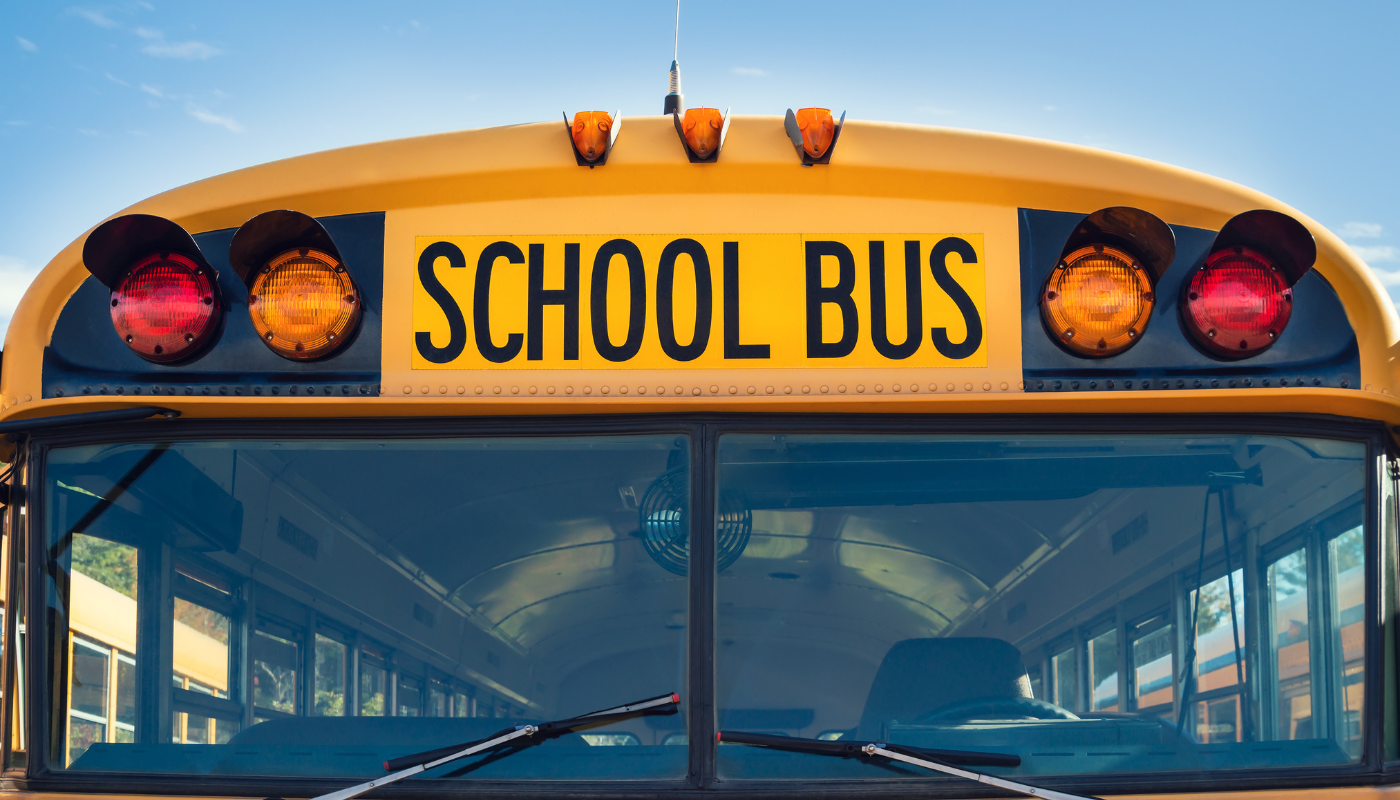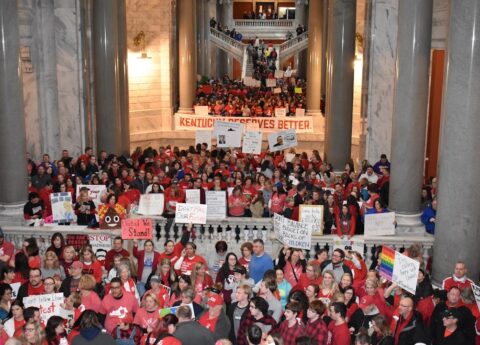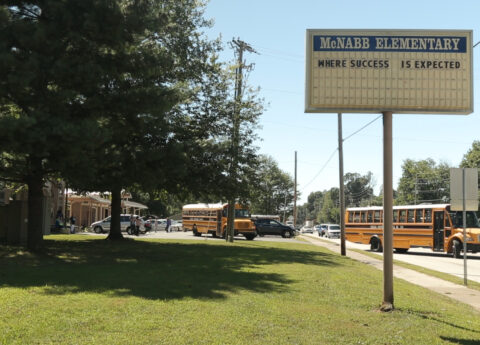The first day of school in Jefferson County should have been joyous for kids and families, but severe busing issues turned the day into a debacle. Leaders should be held accountable, and that includes one actor whose funding decisions contributed to the problem: the Kentucky General Assembly.
Paying the full cost of busing kids to and from school is a state responsibility under law. Years ago, to meet its constitutional obligation for a system of common schools, the General Assembly established in statute a formula to calculate busing costs and a pledge to pay 100% of those expenses.
But it’s a responsibility the legislature chose not to fulfill every year since 2005. By inserting the legal term “notwithstanding” into their budgets, the legislature can temporarily suspend its own laws when allocating funds. The share of total school transportation costs the General Assembly funded fell over time to just 55%. Despite billions now sitting idle in the state’s rainy day fund, the legislature is still paying only 70% of busing costs today.
If the General Assembly met its obligation to fully fund transportation, Jefferson County Public Schools (JCPS) would have received 82% more state dollars between 2020 and 2022 dedicated to hiring and retaining bus drivers, and 43% more this year. The state shorted JCPS a total of $104 million in transportation funds just over those four years.
That money would’ve been especially handy given we’re years into a severe bus driver shortage. It’s difficult to attract and retain skilled, credentialed drivers when they receive low hourly pay for part-time, part-year work and have to find other means to cobble together a living.
JCPS and other districts have raised local taxes and used their own funds to bump up pay and incentives to try to attract drivers, but other full-time, year-round alternatives for CDL-credentialed drivers are increasing pay by much more. UPS Teamsters delivery drivers, for example, can eventually make six figures in salary plus excellent benefits under their tentative new union contract. The number of bus drivers in JCPS fell over time from about 900 to just 600 today.
JCPS leaders say they had to revamp its transportation system because of this decline, using a technology contractor to map a system based on fewer drivers. Reliance on a brand new, hastily rolled-out plan with a smaller number of longer routes led directly to the delays faced last week.
There are other overarching trends that make compensation ever more important. Employers have become accustomed to keeping labor costs low through decades of wage stagnation and weak worker power. But the large baby boomer generation is retiring, shrinking the workforce and thereby pressuring employers to improve pay and working conditions if they want to fill shortages. Some private sector employers are catching on, but the public sector must have the tax dollars to raise pay. In the case of bus drivers, the state legislature must step up with the money they already should have been providing.
Instead, some are using the situation as an excuse for radical and harmful proposals. That includes splitting Jefferson County into multiple districts and diverting already-inadequate tax dollars to a second system of private schools. Adding such complexity won’t fix the transportation problem, but it will harm kids as it brings back greater racial segregation and concentrates resources with the wealthy few.
A better first step is for the legislature to follow its own laws and correct its past funding decisions that contributed to the long delays kids and families are now facing.
This column ran in the Courier Journal on Aug. 14.




